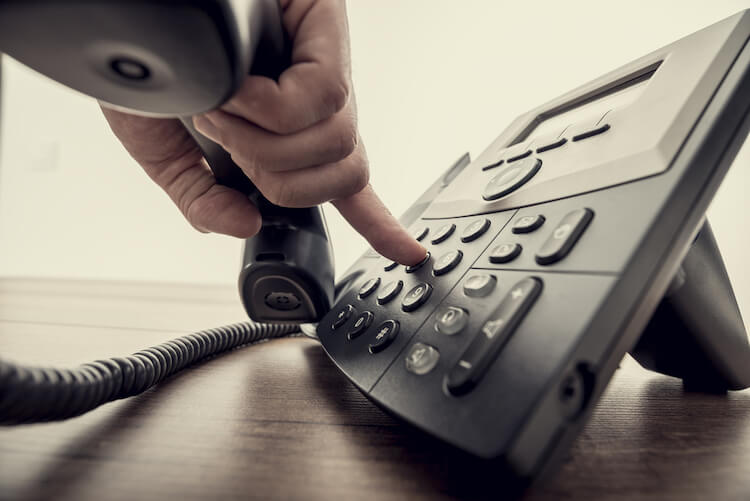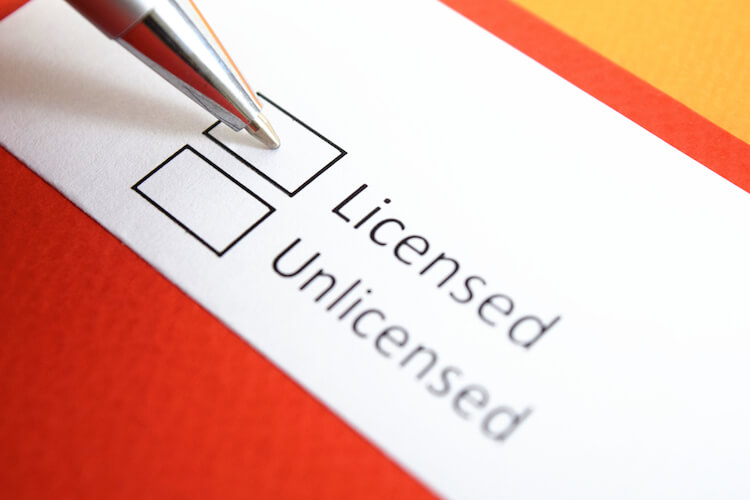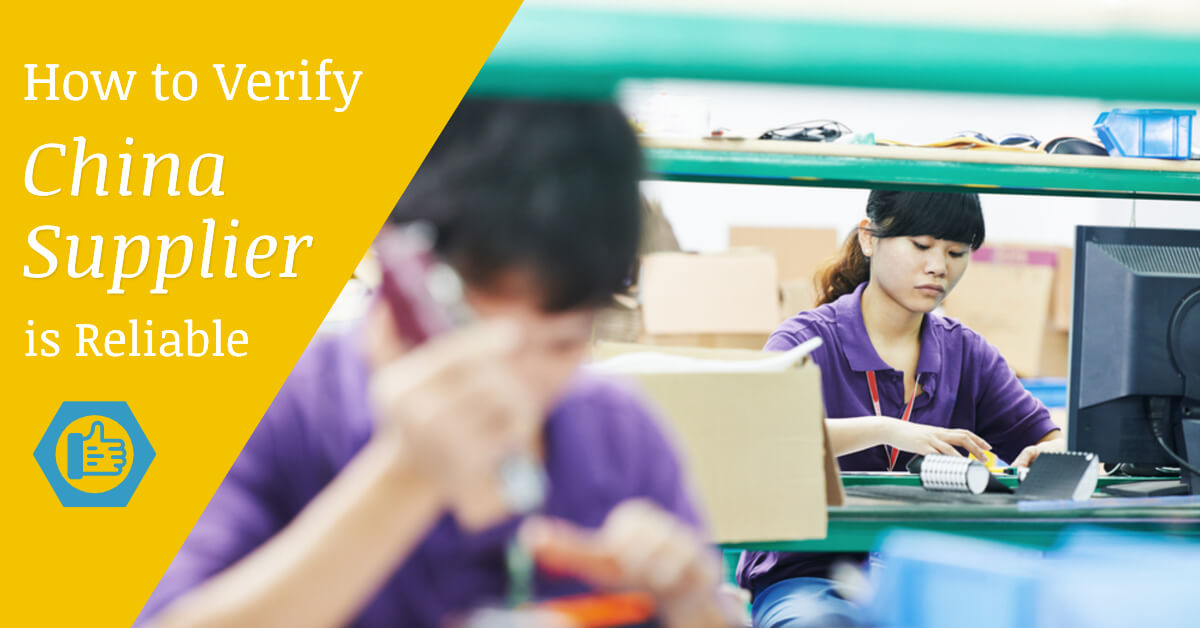Is your supplier in China legit? Learn how to verify Chinese wholesale suppliers so you can find one that you can trust.
There are plenty of frauds and imposters to watch out for. So how are you going to make sure you have a permissible supplier with whom you can trust?
If this is one of your biggest concerns, worry not because you're not alone.
In fact, many companies interviewed in this Global Sources study said that verification of suppliers in China is the largest issue they encounter when importing products from the country.
When you check a prospective supplier, you look at these two factors fundamentally:
Is the company able to manufacture the products you want to purchase?
Is the supplier reputable and legitimate or is it a bankruptcy-ridden scam or business?
This article provides easy and efficient strategies for answering these two questions. Read on to learn the best steps in verifying whether your Chinese supplier is legit.
Research them via Search Engines

When checking out Chinese wholesale websites, read their policies carefully such as returns, damages, or backorders and make sure their contact number and physical address are posted on their site.
Open and search "[ business name ] + scam," "[ business name ] + fake," and some other word variations on Google or other search engines.
Other customers who have had a poor experience with suppliers in China usually attempt to leave a trace of it on the internet.
You will discover the accounts they developed on various B2B sites, including Alibaba, Global Sources, Hong Kong Trade Development Council, to name a few, while looking for the business name of the wholesale supplier.
These sites are an excellent place to search for reviews, getting references and asking questions, but watch out for members who are simply attempting to promote themselves.
Look at how long the provider has been in service, for instance. Doing business with a supplier that has been on the business for more than two years is the most recommended.
In addition, Google Search will inform you whether the supplier has lately participated in trade expos or exhibits, which is a nice indication that you are doing business with a credible supplier in China.
It can be seen as an investment to rent a booth and attend trade shows when obtaining new clients. Regular participation at trade shows also implies that the Chinese supplier is serious about developing customer relationships.
Make a Phone Call

Most scammers do not provide real internet registration information to prevent being tracked by law enforcement officials.
They will, for instance, provide a fake business address, fax, and telephone number, or convince customers to only reach them on their mobile phone.
Make a phone call to the landline of the Chinese supplier and request for their registration and company license number while you're at it. If a provider doesn’t have a landline and can only be contacted through mobile, it should raise a red flag in your mind.
Numerous mobile phone numbers can be purchased in China without any restrictions. That's why fraudsters use their mobile phones rather than landline phones in most cases.
'86' is China’s state code, '10' (or another 2-digit number) is the area code, and the telephone numbers have 8 digits.
Use the telephone number’ area code to perform an intrinsic verification on the location of your potential Chinese supplier.
Check Business Licenses

Chinese suppliers are required to get a company registration number from the government authorities in China. If a Chinese company could not provide you with their registration number, it is a major red flag.
Look for a prospective supplier’s company registration number on the local government website of where they are located. Furthermore, you can also get in touch with their area’s Industry Commerce Bureau.
Check its Import-export License
If someone wishes to export some products from China, there are generally two options on the table: filling in all the customs statement papers by themselves, or finding a customs broker and letting them manage all the issues.
But in order to do this, their business must be a lawful provider of international trade and first have an import-export license.
If not, then they only have one option remaining, which is to falsify the records.
Unfortunately, this service is provided by many underground customs brokers in China.
They perform international trade on the surface, but in fact, they will assist businesses that have not (or have been revoked) import-export licenses to export products on behalf of their own company.
Such a strategy is technically totally illegal. But this practice has been oblivious to Chinese law enforcement agencies for a long time, and only a few firms have been punished.
Although many businesses in search of providers do not check import-export permits, it is highly suggested that you do so.
Since Chinese suppliers without import-export licenses are unable to accept foreign exchange legally, they will ask you to transfer the cash to the account (or personal account) of the hidden broker.
Despite being reasonable, this requirement increases your risk of fraud.
Some underground customs brokers engage in severe criminal acts (such as smuggling), which can lead to customs seizure of your products.
Also, if your supplier's underground customs brokers ' economic situation is unstable, they may vanish unexpectedly with your payment (even if your supplier is honest).
Use Third-party References
To check the monetary creditworthiness of the supplier, ask for letters of reference from their bank. To verify the supplier reliability in generating top-quality products, ask their prior clients and do not hesitate to contact them as well for reference.
Similarly, if you're familiar with any other products in your sector, reach out to them and ask them about any Chinese suppliers they have previously worked with for suggestions.
Purchase Initial Samples
Every time you're purchasing Chinese products from wholesale suppliers, always ask for a sample and be ready to pay for it if you must. You can check the value and quality of a product when you have them. This guarantees that the item is precisely what you're going for.
Also, if you have to pay the initial sample fee, insist that you wire money to the business bank account of your prospective supplier Be wary of suppliers who can’t provide you that as they are most likely not committed to coordinating with you.
If possible, refer to the Audit Reports of the manufacturer and use that as a reference on their capacity in terms of manufacturing and trading.
Databases are Helpful Tools

Search the Chinese Supreme Court database and type the company name of your supplier in Chinese.
Once you find it there, you will be able to figure out if a sentence has been charged to your supplier and if damages have not been paid. The site is all in Chinese, unfortunately, so expect to run into some sort of language barrier. But, you can always hire a Chinese sourcing agent to assist you with the translation.
Besides the above, you can ask the supplier to provide you with the certificates he claimed to have as a next step before placing an order. For instance, if he claims to have a CE or FDA certificate for a particular product, go ahead and ask for a scanned copy of it.
Suppliers may not be able to send you a complete test report/certificate sometimes because their clients applied and paid for it. Which is reasonable, but some data should not be blurred and a screenshot should be sent to you.
You can conduct a third-party audit at your supplier's factory as a final step if you are not yet 100 percent confident.
These third-party audit services are paid. The third-party will perform a thorough factory analysis during these audits based on specific factors that you've set. Prices vary from $300 to $900 in the primary manufacturing areas for a day's work.
Factory audits are one of the best tools to verify the ability of a company to generate high-quality products. Most quality control companies and some sourcing agents like Lazpanda can conduct factory audits on your behalf based on a checklist that you’ve provided.
Let your prospective suppliers know that you will have their warehouse audited before any Purchase Order is given and that they will want to inspect their factory before any shipment is permitted.
Mention this intention immediately when you first meet or on your first email. If the supplier refuses or gives you any excuses, start being skeptic about the potential supplier
Visit The Company Or Factory In Person

Unless you visit a company, you won't understand much about it. This makes personal appearance the best way to verify suppliers.
You can also address face-to-face expectations of your goods, prices, quality inspection and shipping time.
Of course, it is not efficient for you to visit every potential supplier you have in mind. For this, it's best to narrow down your choices before you decide to hop on a plane and pay Chinese factories a visit.
Conclusion
Whether you’re dealing with prospective suppliers from China online or offline, the best way to avoid scammers is doing your research.
Before entering into any transaction, conduct due diligence.
You'll have a great sense of whether you can trust your prospective supplier if you’ve done your research.
Complete verification of the business is a much longer method, but this is an excellent way to kick off your importing journey.
You can learn a lot of crucial data that your Chinese supplier probably not want you to know by following the guide above.
Import from China actually is not a simple task. If you are working with a sourcing agent like me, then you’re already way ahead of the game. But what if you’re one of the 99% of small business owners or Amazon sellers who are not familiar with importing from China. I want to share my sourcing expertise with you to help you grow business.

